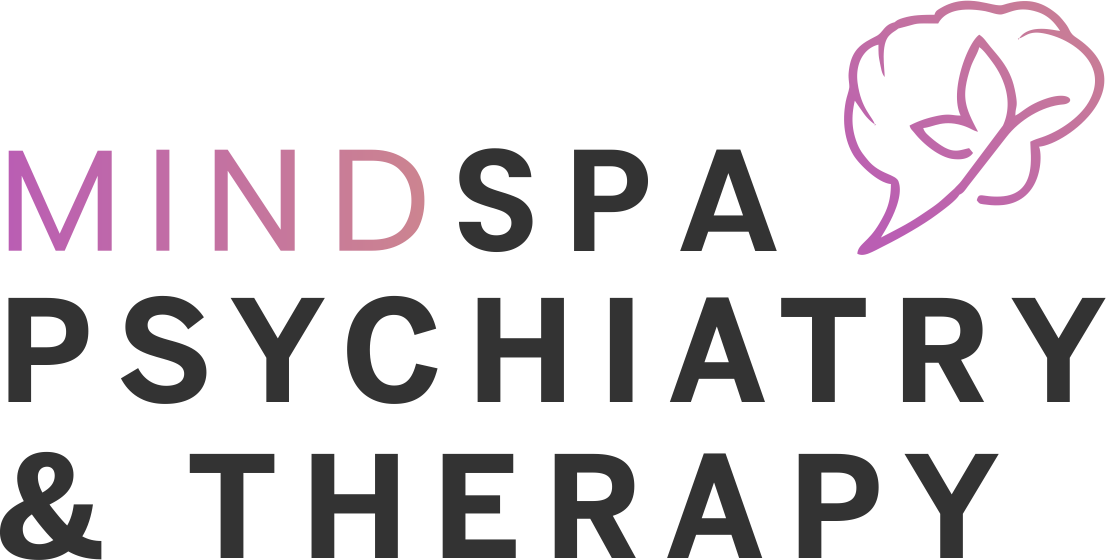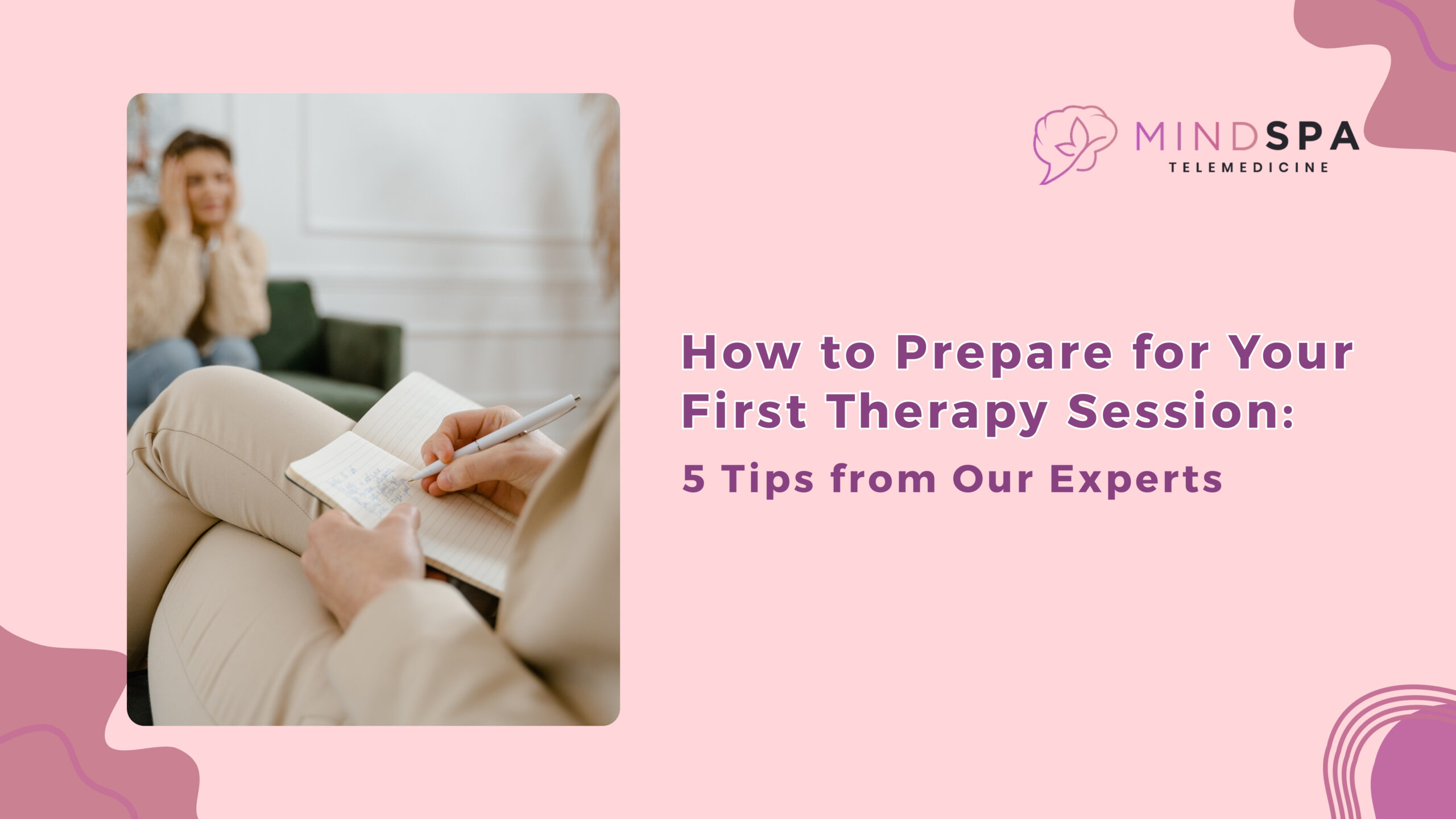Your first therapy session can feel like stepping into the unknown. Even when you’ve already booked the appointment, there’s still that mix of excitement and unease. Will I say the right things? Will my therapist understand me? Will it even help?
Here’s the truth. How you prepare can make a big difference in how comfortable and productive that first meeting feels. Walk in with a little groundwork, and you’ll reduce nerves, settle into the process faster, and get more out of the conversation.
At MindSpa Psychiatry & Therapy, we’ve guided hundreds of first-time clients through that crucial starting point. Over time, we’ve seen the patterns. The people who arrive ready, not perfect, but prepared, tend to feel more at ease and get into meaningful discussions much sooner.
If you’ve booked your first session, this guide is for you. These five expert-backed tips will help you make that first hour count.
1. Get Clear on Why You’re Going
Therapy doesn’t require you to have everything figured out, but it helps to know why you’re showing up. Your “why” can be broad or specific. Maybe you’re feeling anxious and want tools to manage it. Maybe you’ve been through a major life change and need space to process. Maybe you just feel stuck and want clarity.
Spend a little time thinking about what’s been on your mind most. You might notice certain themes: work stress, relationship issues, lingering grief, or feelings you can’t quite name. You don’t have to bring a perfectly organized story. You just need to give your therapist a starting point.
Think of it like describing symptoms to a doctor. The clearer you can be about what’s bothering you, the easier it is for your therapist to understand your needs and start exploring possible paths forward.
This isn’t about impressing anyone. It’s about giving yourself a head start. When you walk in with a sense of your “why,” you spend less time circling the runway and more time in meaningful conversation.
2. Shift Your Expectations
One of the biggest sources of first-session anxiety is expecting too much too soon. It’s natural to want instant clarity or quick fixes. But therapy isn’t designed to solve everything in a single meeting.
Your first session is more like an introduction than a full treatment plan. You’ll talk about your background, current concerns, and what you hope to achieve. Your therapist will ask questions, explain how they work, and suggest ways to move forward.
You may leave feeling lighter, or you may leave with more questions than answers. Both are normal. Real progress happens over time, through ongoing conversations and gradual insights.
When you approach your first session as the start of a process and not the solution to all your problems, you take pressure off yourself. That creates room for honesty, curiosity, and a more natural connection with your therapist.
3. Set Up the Practical Details
Small things can make a big difference in how relaxed you feel. Before your appointment, handle any logistics so you’re not scrambling at the last minute. If you’re meeting in person, aim to arrive a few minutes early. That extra time helps you settle in and breathe before diving in. Bring anything your provider requested, such as intake forms or insurance information so that you can focus on the conversation instead of paperwork.
If your session is online, test your camera, microphone, and internet connection in advance. Choose a quiet spot where you feel comfortable speaking openly. Close any apps or tabs that might distract you. Even details like lighting can affect how present you feel. Soft, natural light is best for staying calm and focused.
Comfort matters too. Wear something that won’t distract you or make you fidget. Keep a glass of water nearby. These minor adjustments reduce stress and help you feel more grounded in the moment.
4. Be Honest, Even When It’s Uncomfortable
If you’re feeling awkward, uncertain, or nervous, say it. Therapists expect that first-timers will feel a little on edge. Naming those feelings can actually make them easier to manage.
You don’t have to share your deepest secrets right away. Therapy is about pacing yourself. But being truthful about how you feel, what you’ve experienced, or even what you’re not ready to discuss sets the tone for a trusting relationship.
Sometimes, honesty starts with something as simple as admitting you’re not sure where to begin. That’s okay. Your therapist can guide you with questions and prompts. What matters is that you show up as yourself, even if “yourself” feels messy or uncertain.
Remember, therapy is confidential. You’re in a space designed for openness and understanding, not judgment. Your therapist’s role is to listen, help you unpack what’s on your mind, and work with you to find clarity and direction.
5. Give Yourself Time to Process
Therapy has a way of bringing up feelings you didn’t expect. You might walk out feeling relieved, energized, drained, or even unsettled. All of these reactions are normal. They’re signs that you’re starting to explore areas that matter.
If possible, reserve some space before and after your first session. Beforehand, use a few quiet minutes to check in with yourself and think about what you want to discuss. Afterward, avoid rushing straight into another task or stressful situation. Take a short walk, journal your thoughts, or simply sit with what came up during the conversation.
This breathing room helps you process and retain what you discussed, instead of pushing it aside in the rush of daily life. Over time, this habit of giving yourself space can make your therapy more impactful because it encourages reflection between sessions.
Wrapping Up…
Booking that first appointment is a powerful choice. It’s proof that you’re ready to invest in yourself and your mental health. The tips above aren’t about overthinking; they’re about helping you show up prepared, grounded, and open to the experience.
At MindSpa Psychiatry & Therapy, we know how important that first step is. Our licensed therapists create a safe, welcoming space where you can speak freely, whether you’re in the room with us or connecting online. You’ve already said yes to the journey. Now, give yourself the best chance to get the most from it.
If you haven’t booked yet, there’s no better time. Schedule your first session today and take that next step toward clarity, growth, and peace of mind.
Frequently Asked Questions
Is it normal to feel anxious before therapy?
Yes. Most people feel a little nervous before their first session. Talking about that anxiety openly with your therapist can actually help.
Will I feel better after just one therapy session?
Some people feel immediate relief, while others may feel more reflective or even unsettled. Both are normal. Therapy works best over time.
What should I do after my therapy session?
Give yourself time to process. Take a short walk, journal your thoughts, or simply sit with the emotions that came up.

